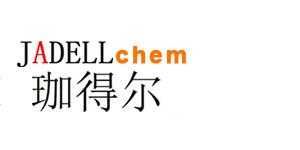Recombinant Human Tumor Necrosis Factor-alpha/TNFSF2 是一种促炎性细胞因子,同时能够高效地靶作用于肿瘤细胞,而对正常细胞毒性很低。
Synonyms
rHuTNF-α/TNFSF2; TNF-alpha; Cachectin; DIF; TNFA; Differentiation-inducing factor ; 重组人肿瘤坏死因子-α/TNFSF2
Species
HumanSource
E. coli Accession
P01375 Gene ID
7124 Molecular Weight
Approximately 17.3 kDa AA Sequence
VRSSSRTPSD KPVAHVVANP QAEGQLQWLN RRANALLANG VELRDNQLVV PSEGLYLIYS QVLFKGQGCP STHVLLTHTI SRIAVSYQTK VNLLSAIKSP CQRETPEGAE AKPWYEPIYL GGVFQLEKGD RLSAEINRPD YLDFAESGQV YFGIIAL Biological Activity
The ED50 is <30 pg/mL as measured by L-929 mouse fibrosarcoma cells, corresponding to a specific activity of >3.3 × 107 units/mg. Appearance
Lyophilized powder. Formulation
Lyophilized after extensive dialysis against PBS. Endotoxin Level
<0.2 EU/μg, determined by LAL method. Reconstitution
Reconstitute the lyophilized recombinant Human Tumor Necrosis Factor-alpha/TNFSF2 (rHuTNF-α/TNFSF2) to 100 µg/mL using ddH2O or diluted with PBS. Storage & Stability
Lyophilized recombinant Human Tumor Necrosis Factor-alpha/TNFSF2 (rHuTNF-α/TNFSF2) is stored at -20°C. After reconstitution, it is stable at 4°C for 1 week or -20°C for longer. It is recommended to freeze aliquots at -20°C or -80°C for extended storage. Shipping
Room temperature in continental US; may vary elsewhere. Background
Tumor necrosis factor α (TNF-α, also known as cachectin) is a strong pro-inflammatory cytokine playing an important role in the immune system during inflammation, cell proliferation, differentiation and apoptosis. TNF-α is type II transmembrane protein that can be expressed in both membrane-bound and secreted forms. Receptors for TNF-a are part of TNF receptor (TNFR) superfamily, with characteristic intracellular segment, a transmembrane domain, and an extracellular ligand-binding domain. They are type I transmembrane glycoproteins characterized by a cysteinerich motif (up to 40 aminoacids) repeated 2-6 times in the extracellular N-terminal domain[1]. Tumor necrosis factor-α (TNF-α) is a pleiotropic factor exhibiting antitumor effects, alters endothelial barrier function, reduces tumor interstitial pressure and mediates immune responses. TNF-α is associated with a number of cell signalling events, associated with cell necrosis and apoptosis, and is important for resistance to infection and cancer[2] |



